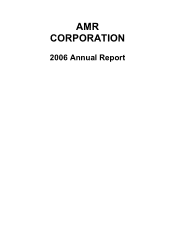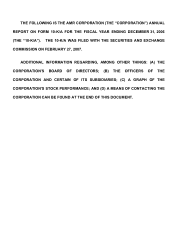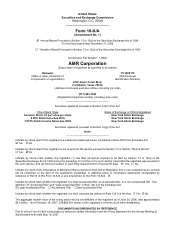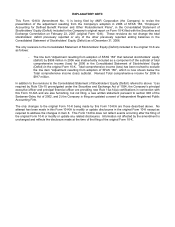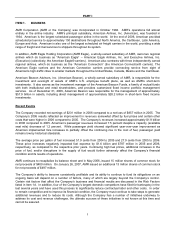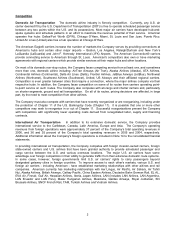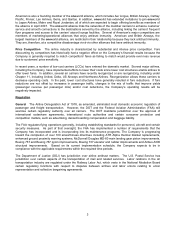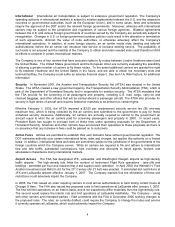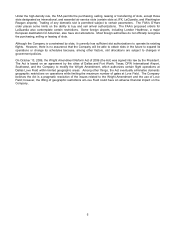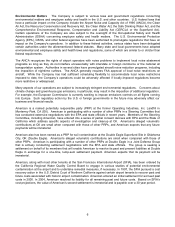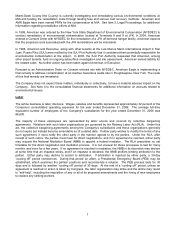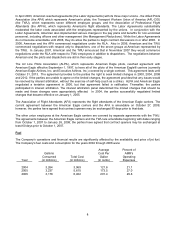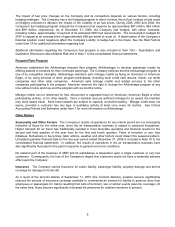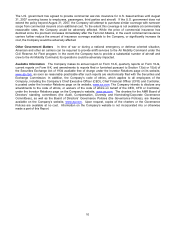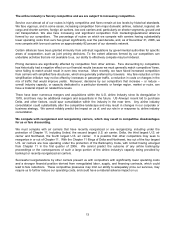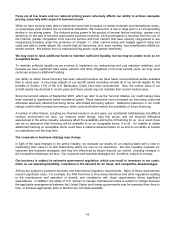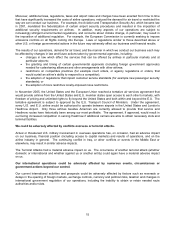American Airlines 2006 Annual Report Download - page 9
Download and view the complete annual report
Please find page 9 of the 2006 American Airlines annual report below. You can navigate through the pages in the report by either clicking on the pages listed below, or by using the keyword search tool below to find specific information within the annual report.5
Under the high-density rule, the FAA permits the purchasing, selling, leasing or transferring of slots, except those
slots designated as international, and essential air service slots (certain slots at JFK, LaGuardia, and Washington
Reagan airports). Trading of any domestic slot is permitted subject to certain parameters. The FAA’s O’Hare
order places some limits on the ability to buy and sell arrival authorizations. The FAA’s proposed orders for
LaGuardia also contemplate certain restrictions. Some foreign airports, including London Heathrow, a major
European destination for American, also have slot allocations. Most foreign authorities do not officially recognize
the purchasing, selling or leasing of slots.
Although the Company is constrained by slots, it currently has sufficient slot authorizations to operate its existing
flights. However, there is no assurance that the Company will be able to obtain slots in the future to expand its
operations or change its schedules because, among other factors, slot allocations are subject to changes in
government policies.
On October 13, 2006, the Wright Amendment Reform Act of 2006 (the Act) was signed into law by the President.
The Act is based on an agreement by the cities of Dallas and Fort Worth, Texas, DFW International Airport,
Southwest, and the Company to modify the Wright Amendment, which authorizes certain flight operations at
Dallas Love Field within limited geographic areas. Among other things, the Act eventually eliminates domestic
geographic restrictions on operations while limiting the maximum number of gates at Love Field. The Company
believes the Act is a pragmatic resolution of the issues related to the Wright Amendment and the use of Love
Field; however, the lifting of geographic restrictions at Love Field could have an adverse financial impact on the
Company.

